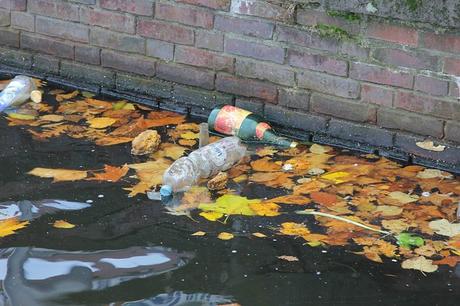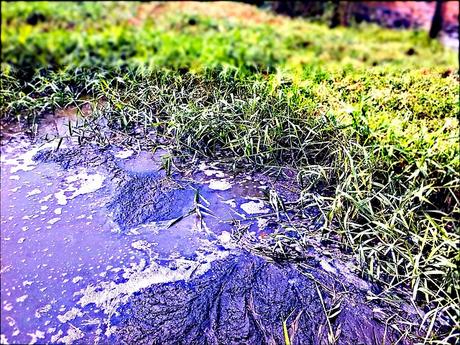Water is an essential part of everyday life. This is not just true for humans, but for all of Earth’s flora and fauna. Water is the chemical which allowed life to flourish on earth when it has not done so elsewhere. As such, it is critically important that water is kept safe and clean. The water of the ocean is home to millions of species, and the clean drinkable water elsewhere is home to many more as well as being an important resource for land and air-dwelling creatures. There are many ways that we as individuals and as a collective can prevent further pollution of our planet’s water systems and – perhaps most importantly – start to reverse some of the damage that has already been done.

1. Try to avoid using too many plastics. Plastic is a material that is very difficult to break down once produced, and as such can create many problems should it end up in the water system. While large plastics can be fished out, smaller plastic particles can cause immeasurable damage.
2. Plastic waste is not only damaging to the water when broken down, but due to the harm done to marine life, it can also spread death and decay in the water.
3. Reuse things where possible. In particular, plastic bags should not simply be thrown away when the groceries are put away. Instead, you should keep a hold of your bags and reuse them.
4. Try to opt for recyclable and reusable options. Things such as reusable batteries cut down considerably on the amount of dangerous waste produces, while opting for glass bottles over plastic ones can help as glass is infinitely easier to recycle than plastic. Glass bottles are also much easier to wash out and reuse than plastic ones.
5. Oils are a cause of many problems in the water system, and quite commonly it simply comes from household kitchens. Sinks should not be used for discarding fats and oils. These should instead be collected in a container and disposed of at a proper facility as solid waste.
6. Household cleaning chemicals, too, are potent polluters of water systems. Many people will simply dispose of their cleaning chemicals in a sink or toilet, but these, too, have specialized waste disposal units set up to safely dispose of them.
7. Medicines in any form are dangerous to the water system, both for the wildlife living therein and the creatures that drink from it. These should always be disposed of safely in special facilities, which differ from product to product.
8. While items such as toilet tissue are specially designed to break down in the pipes, other common household items such as candy wrappers, rags, and even dental floss are not. This means that when they get flushed, they simply pollute the system. Dispose of these in waste baskets.
9. Garbage disposals are relatively handy to a number of people, but they’re really not great for the water system. Solid wastes should be kept intact and disposed of properly rather than ground down and flushed. In particular, food waste should be composted for maximum benefit.
10. Most household electronics such as washing machines and dishwashers, as well as conveniences such as toilets, come with a water efficiency rating. Installing water efficient utensils is a great way of ensuring that water is not wasted, which is important as greater use of water calls for more to be taken out of the natural system.
11. Ensuring that dishwashing and laundry are both undertaken only when you have a full load is a good way of conserving water.
12. When it comes to using washing machines and dishwashers, be sure to use the correct amount of detergents, soaps, and bleaches. Using an excessive amount of any of these will result in it simply passing through into the water system and causing severe damage.
13. Make sure that you make use of environmentally friendly soaps and detergents where possible. Phosphates, in particular, should be looked out for, as large amounts of phosphates cause immeasurable damage to the water system. Making use of phosphate free detergents can help counter this issue.
14. When gardening, try to avoid the overuse of water. Maintaining a garden is one thing, but the excessive use of clean water for gardens takes it out of the drinking system and puts a strain on water processing. For those living in areas with plenty of rainfall, consider installing a waterbutt that you can use to catch rainwater for distribution during dry times.
15. Try also to avoid making use of herbicides and pesticides while gardening, as these are particularly damaging to the soil and the ecosystem of the garden. When added to the overuse of water as mentioned above, these chemicals can spread a long way and cause a lot of pollution.
16. Conserve your soil as much as possible. Any chemicals that make their way into the soil quickly spread through the water as the topsoil is carried away by rainfall. While this is a natural process, soil that has been exposed to too many phosphates or other harmful chemicals can cause real damage. Build up banks in front of waterways in order to protect against soil movement.
17. Keep your cars and other mechanical devices in good working order. Changing oil when necessary is essential not only for the maintenance of your car’s engine and moving part, but also the conservation of the environment. When oil is moved about in an engine, it breaks down into component parts which are often harmful and dangerous to wildlife and humans. Making sure that you change it regularly can help prevent this from happening.
18. Disposing of waste products such as oil and transmission fluid into drains or sewers is terribly harmful for the environment. Since the sewers empty directly into the rivers, these products simply find their way into the ecosystem of the river and spread pollution. Automotive fluids must be disposed of at a processing plant with special disposal units set up.
19. Some homes still make use of cellar drains, septic tanks, and sump pumps. These are fine, but if they drain directly into the sewer system they can cause huge problems and ultimately end up polluting the system. Make sure to confer with your local water authority about proper management of your home sewage.
20. It may sound obvious not to improperly discard of litter, particularly in oceans and rivers. However, the vast amounts of litter found in bodies of water show that it is patently not obvious and needs addressing. Always make sure to keep your litter with you until you can find a proper dispensary for it, as this will help keep it out of the water.
21. Using water sparingly is always a good thing, and it is easier than you might think. Simple things such as turning off the tap when brushing your teeth, showering rather than bathing, and just being aware of the amount of water you use can help keep the amount of water wasted to a minimum, which takes a lot of the strain off of the water processing plants.
22. If you’re lucky enough to live close to a river or lake, try to plant local fauna and trees in order to protect the water from chemicals and other pollutants which might drain down from the surrounding houses in the event of rainfall. Fauna can also help with minimizing the amount of CO2 stored in the water, which can help to balance the water’s pH level.

23. If you notice litter in your local water body, do your best to clean it up. Every bit of litter that is taken out of the water is a bit that is no longer polluting, and is a worthwhile pursuit. For a greater impact, get a whole group together to go out and clean up the water. This will get people enthused and actively interested in conserving the water.
24. If you notice that chemicals and pollutants are being spilled or poured into a body of water, do not simply let it slide. Contact the local water authority to have them sort it out. Keeping quiet about pollution will only help it to continue and grow, and polluters need to be penalized. Similarly, it could be an accidental leak that needs addressing for safety purposes.
25. Some problems are not immediately obvious to the individual. One such thing is the effect of unsustainable animal produce on the water system. Factory farms are notorious for producing huge amounts of waste which tend to be very toxic and foul. These are then disposed of in the waterways, and require a huge amount of work to purify for human consumption. As such, making sure that you buy sustainable meats rather than those from factory farms is a good step towards minimizing the impact your diet has on water pollution levels.
26. Join organizations dedicated to water preservation if you can. Keeping yourself informed and involved with conservation efforts is a great way to do your part for the environment and help to cut down on water pollution the world over.
27. If you cannot join an organization for whatever reason, consider donating to some. Water conservation organizations can always use more funds in order to achieve a more widespread effect and help to spread awareness about problems to the local population. Even small donations, where requested, can help immensely, so you can do your bit even if it’s only a little at a time.
28. Raise your voice to companies and politicians who are not doing enough to protect the water. Write emails and letters, and make use of social networks to highlight the problems caused by inaction and poor care.
29. Help others when called upon for help. When others want to get involved with protecting the waterways, you should offer your help to aid them in achieving this goal.
30. Raise awareness where possible. While doing all of this on your own or with your family is very effective and helpful, this effect can be magnified significantly by you spreading the word about water pollution to friends and colleagues. Being active in spreading information can really help to get people enthused and keep them informed about what they can do to help keep water clean.

